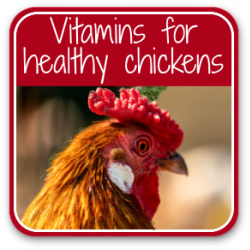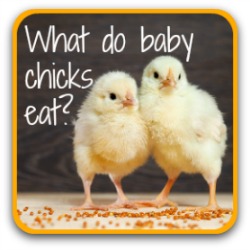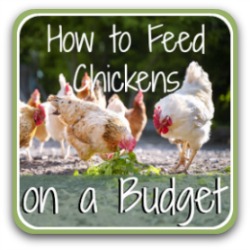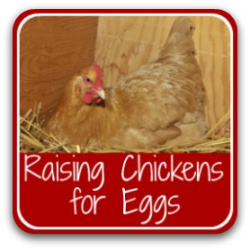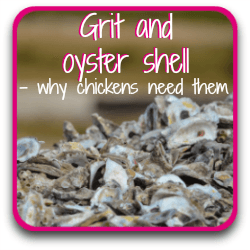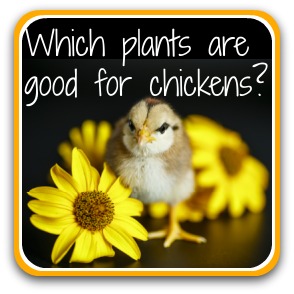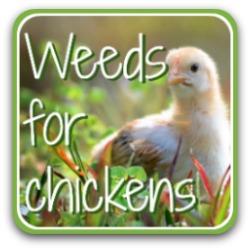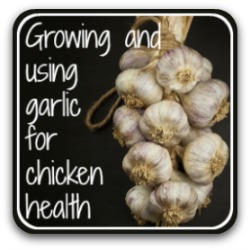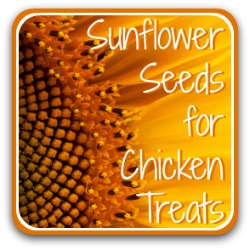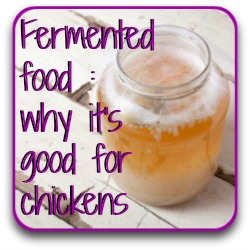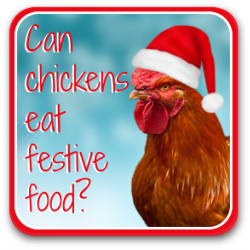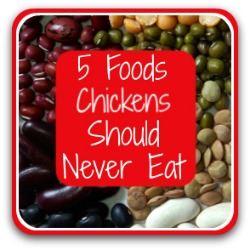- Home
- Food
What do chickens eat?
The foods you should be feeding to your backyard flock - and some you should steer clear of.
Confused about which foods your chickens should and shouldn't eat at what age, and at different times of year?
You're not alone!
I remember being completely at a loss about their nutritional needs when I was first starting out with my backyard flock.
I wrote these articles to help prevent you from being as confused as I was, and to keep you abreast of any developments in research and experience.
They're all based on properly researched evidence, both scientific, peer-reviewed papers and advice from renowned chicken experts such as Gail Damerow.
So you can rest assured that you're truly getting the best possible guidance for your flock.
From newly hatched to adult breeding hens and beyond, these articles will take you through the best nutrition for your chickens at all the key points in their life and across every season.
Section 1: Basic foods and how to feed them.
Vitamins and minerals: which are best for chickens?
If you're worried about whether your chickens are getting enough essential vitamins and minerals, or if they're unwell and you want to know which foods can best help, this article is a must.
Arranged as a table, it's easy to scan through, find whichever problem your chicken has, learn which vitamin or mineral can help, and discover which foods are best to provide it.
Which basic foods should chickens eat?
Confused about what your chickens should eat and at what age?
Hens and roosters need different nutrients at different times in their life. Feeding the wrong balance can seriously affect their health.
This article describes what a chick should eat from point of hatch right through to adulthood.
What do baby chicks eat?
A more detailed article about what baby chicks should eat, from hatch to 8 weeks old.
It covers properly balanced starter feed, when they can safely eat treats, what part grit plays for a baby chick, which feeders work best...
And importantly, what's a good food for weak chicks who need that extra bit of help.
Feeding chickens on a budget
Ideally, chickens should be fed on a mix of a balanced commercial feed, with other food used as occasional treats.
But when times are hard, or at a point where you realise chickens cost more to feed than you thought, it helps to know which other foods chickens can eat which are still nutritious.
This article details six ways of providing your flock with a good range of inexpensive, non-commercial food.
What do egg-laying chickens eat?
So you want to raise hens to keep your family supplied with delicious, nutritious eggs?
It's important to know what feed works best for hens who have started to lay. Food that's not balanced can cause serious problems for their health.
This article recommends the right food, offers detailed advice for choosing and caring for egg-laying hens, and shows you how to know when they're going to start laying.
What do roosters eat?
From hatch to adulthood, what should roosters eat? Are their needs the same as hens', or do they change as they approach adulthood?
This article covers researched evidence about the ideal rooster diet, and how to make sure that, in a mixed flock, everyone is able to access the feed they need at the right time.
Can my chickens eat this?
So many foods have contradictory information about whether or not they're good for chickens.
This series of articles covers properly research-based information about a variety of foods and treats, including fruit and vegetables, plants and weeds, and high protein treats.
If you're wondering whether your flock can eat a certain food, or whether it might be unhealthy, take a look at this series first.
Oyster shell for chickens – is it necessary?
Why do chickens need oyster shell – and do all chickens need it? And if not, how to tell who needs it and who doesn't? Does it really matter if they don't have it?
Are there alternatives to oyster shell? How should it be fed? And how often?
This article, based on properly researched studies, answers these questions and more to make sure your chickens and their eggs remain in tip-top condition.
Grit and oyster shell.
Grit and oyster shell are both critical to your chickens' health.
If you give one do you still need to give the other? What happens if your chickens don't eat them? Do roosters need oyster shell? What about chicks?
This article answers those questions for you so that you have a clear idea of what supplements should be given, when.
Best automatic chicken feeder - a review.
Working out what chickens eat is your first step. Working out how to feed it is next.
Grain is a sure way to invite unwanted guests into the coop. Wild birds and rodents will come wherever there is available food. Both will bring disease to your coop and your home.
The answer is a feeder which is rodent-proof and not open to the elements. Grandpa's is the best to fit the bill. Find out why in this article.
Section 2: Healthy Treats.
Gourmet treats for baby chicks!
Everyone always wants to feed baby chicks treats as soon as they're hatched.
But is it wise? Can a baby chick's digestive system deal with the same type of treats as an adult, or should they be completely different?
This article explains when it's safe to give treats to chicks, what's best and how to safely offer them.
What vegetables can chickens eat?
Vegetables are an easy, inexpensive way of making sure your chickens get all the necessary nutrients for a long and happy life.
But wehich are known to be particularly beneficial – and what's the one veggie that chickens shuold try to avoid?
This article is based on research studies and covers the ten most popular veggies, what's so good about them, and how they should be fed.
Which flowers are good for chickens?
Did you know that some plants can act as an antibiotic for your flock? Or that there's a flower that's a fly repellent, antioxidant and agent to lower cholesterol levels in eggs - all rolled into one?
See the video below for a summary, then click over to the page for more details.
For a quick preview of which flowers chickens can eat, watch this short video.
Identifying weeds as chicken treats
Chickens can cost more to keep than you might think. But there's a healthy food source you may not have considered. Until now.
This article identifies six weeds which are probably growing on your land right now. And if they're not, I show you how to grow the most nutritious from scratch.
With detailed descriptions and photos to guide you, you'll soon be foraging along with your flock!
Five healthy treats your flock will love to eat!
Chickens should be fed treats only as part of a well-balanced diet. But how to know what's good for your flock and what's not?
My guide to ten of the healthiest treats for your poultry starts here, with the first five.
It describes what's good and why and gives advice about when treats can be given, when they should be given and when they should be avoided.
Five more healthy treats for happy hens.
This page looks at the benefits of five more healthy treats.
The benefits and the potential problems of flowers, lettuce, melon, pumpkins and tomatoes are all dealt with in detail.
You'll always be sure you're giving your flock only the best of all possible treats.
The benefits of chickens eating watermelon
One of the most hydrating foods a chicken can have, watermelon is packed full of vitamins, minerals and anti-oxidants which promote healthy development.
But did you know the rind is the most nutritious part?
This article explains why, and provides two recipes which will encourage your flock to eat the rind as well as the flesh and seeds they prefer!
How to make a frozen chicken treat.
Kids love to do this!
And frozen treats can literally be a life-saver, avoiding dehydration and heat stress.
Filled with goodies they love, these iced delights thaw gently as they melt in the heat.
Inexpensive and easy - a real summer boon.
Sprouting seeds for chicken treats!
Proteins, vitamins, anti oxidants - take some seeds and add water to grow little powerhouses of goodness for your flock.
So simple to do, such a great benefit for your chickens' health.
And here's another benefit - they're just as good for humans, and delicious in salads.
Try them and see!
Chicken health benefits of pumpkins.
Vitamin A, Vitamin E, zinc and so much more - pumpkins and their seeds are a healthy source of vitamins and minerals for chickens. And they're low in fat.
Stored for all-year feeding, they're particularly good for laying hens in Spring and for a healthy winter treat.
And find recipes for pumpkin based treats, here!
The benefits of feeding garlic to chickens.
Garlic has been proven to have amazing health benefits for humans, but did you know it's also a super-food as far as chickens are concerned?
This article discusses why, when and how you should add garlic to your flock's diet, from tiny chick to adults.
For a good all-round boost for your ladies (and boys!) at any time of year, or a deterrent for mites and worms, you can't do better.
Section 3: High Protein Treats.
Ten high protein treats.
When should your flock eat high protein foods?
Which are good for your hens and why is it possible to "kill them with kindness"?
My list of ten high protein treats comes from proven research about the most effective ways of helping chickens through the hard times in life.
Sunflower seeds.
The happy flower: fields of yellow in the summer, and in the autumn, healthy, high protein treats for your flock. Sunflowers.
This article looks at the nutrition in their seeds, and which type is best for your flock.
It considers the best varieties to grow for the highest yield of seeds, how to plant and when to harvest to make sure of the highest levels of oil.
Can chickens eat fish?
We know it's good for humans, but is fish something that's a healthy food for chickens?
This article looks at the benefits of chickens eating fish. It also uses research to examine whether fresh or canned fish is best, and which type.
There's also a simple, quick recipe which I use for my chickens' traditional Italian Christmas Eve fish meal!
Homemade Protein Platter.
It's good fun to put some high protein foods together to help chickens through moulting or to give them a boost during the winter months.
This recipe provides the type and quantities of ingredients you'll need for your own flock, big or small.
Take this as a base and then - experiment until you find the perfect recipe your hens will love to eat!
Fermented food: what it is and why it's good for chickens.
If you're not sure why it's good for your chickens, or even what fermented food is, this article will help.
It discusses whether introducing bacteria into food can be healthy, how it helps increase resistance to illness and disease, and details drawbacks.
If you've never tried fermenting chicken food before, you'll want to after this!
How to ferment chicken food in four easy steps.
Once you've realised how beneficial fermented food is for your flock, it's time to start making some!
It's a relatively straightforward process which some places on the internet make more complicated than it needs to be.
This article leads you through four simple steps, from choosing the right foods to exactly how to do it.
Section 4: Foods to avoid.
Festive foods – helpful or harmful?
We all like to treat our chickens from time to time, and what better time than when we ourselves are celebrating.
But are our holiday foods good as chicken treats? Which are healthy, which are "ok", and which are positively harmful?
This article takes 20 common festive foods and uses research to assess their benefits for our flock.
Can chickens drink milk?
What should chickens drink? Should milk form part of their everyday diet?
This article examines the available evidence: are chickens able to digest dairy products? Is one type of milk any better for them than another?
Reviewing the consequences of dairy fed chickens from an Italian farmer and the pastures of France, it comes to a conclusion for the rest of us about what chickens should drink.
5 foods your chickens should never eat.
So you know which foods your hens should eat - but do you have any idea about those which could prove fatal?
These five could - and they're commonly available. It would be very easy for you to give them without realising the harm you're doing.
Don't risk letting your hens eat anything poisonous. Find out what you should be avoiding at all costs.
- Home
- Food

